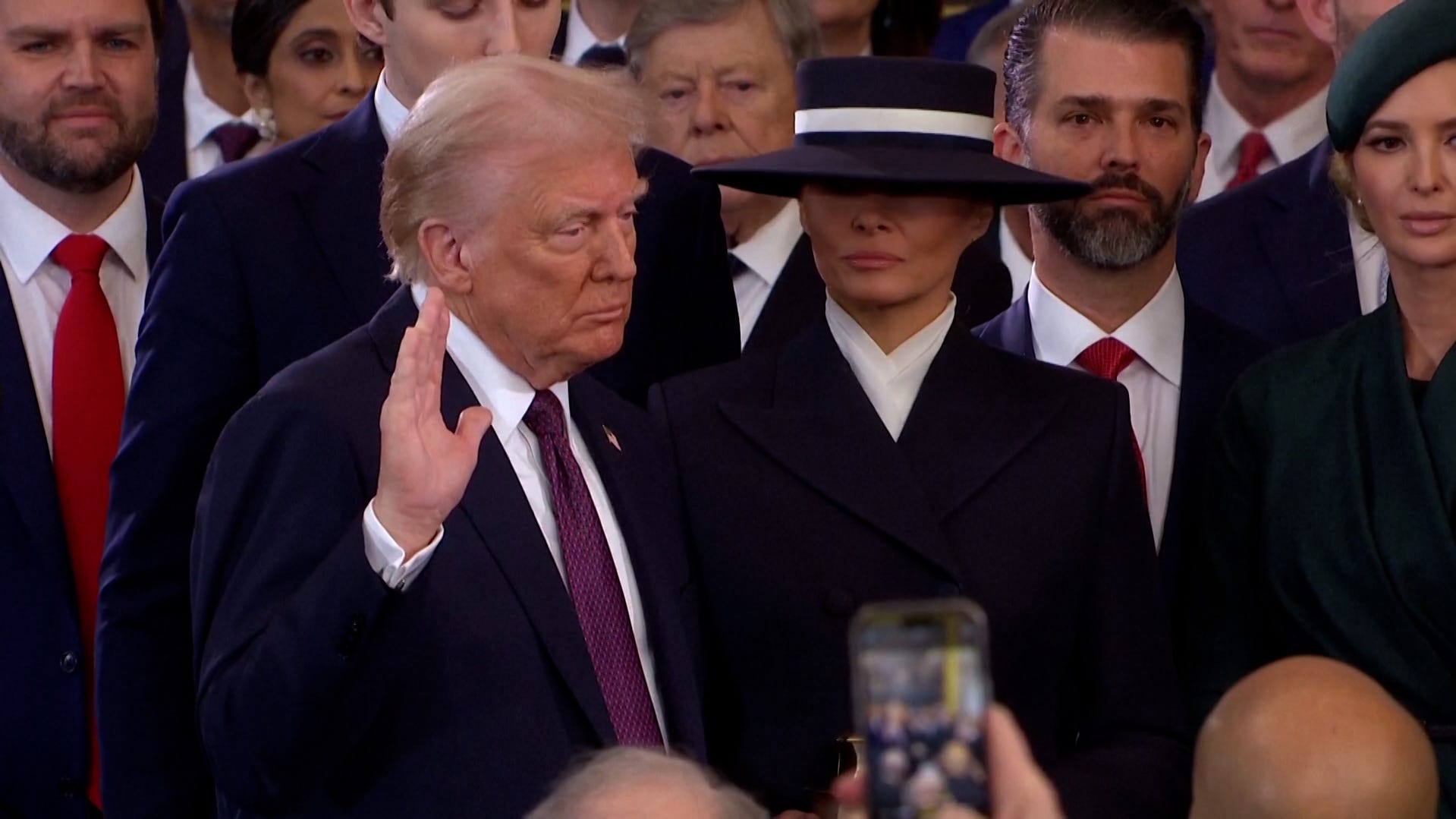Trump nominates Neil Jacobs to lead NOAA again

Neil Jacobs, the former acting administrator of the National Oceanic and Atmospheric Administration, has been nominated by President Donald Trump to take the agency's helm once again.
During his previous administration, the president nominated Jacobs to serve as the Assistant Secretary of Commerce for Environmental Observation and Prediction and he was confirmed in February 2018. He became the acting NOAA administrator in 2018 and was nominated as administrator in 2019.
Although Jacobs served in the role from 2018 until the end of the president's first term, he was never confirmed by the full Senate, after being embroiled in a controversy dubbed "Sharpiegate" as Hurricane Dorian was bearing down on the United States.
His nomination will again be subject to Senate confirmation.
What does NOAA do?
NOAA has a vast mission that includes monitoring and predicting weather and climate and warning the public, storing the nation's massive bank of weather data and making it available for research. The agency also oversees oceans and coasts, observing change, protecting resources, including endangered species such as whales and turtles, and managing the nation's fisheries.
With an annual budget of roughly $7 billion and nearly 12,000 employees, the agency's responsibilities are split into six different branches, including the National Weather Service, National Marine Fisheries Service and the National Environmental Satellite, Data and Information Service.
Who is Neil Jacobs?
Jacobs, 51, is an atmospheric scientist with a bachelors degree in math and physics from the University of South Carolina and masters and doctoral degrees in atmospheric science from North Carolina State University.
The Colorado native is a father of two and an avid surfer.
Before being appointed to NOAA the first time, Jacobs had been the chief atmospheric scientist at Panasonic Avionics Corporation, directing research and development of its aviation weather observing platform and weather forecast model programs.
Federal government records show his NOAA salary in 2020 was roughly $170,000.
He has served on a forecast improvement group at the American Meteorological Society and on an aircraft-based observing systems team at the World Meteorological Organization, according to his biography from his previous stint at NOAA.
Support for Jacobs
Jacobs' nomination was quickly supported by at least two fishing organizations.
He's "a great choice to lead NOAA,” said Noah Oppenheim, coordinator of the Maine-based Fishing Communities Coalition, an association of small-boat commercial fishing groups.
“Commercial fishing communities need a steady hand at the helm as we face unprecedented infrastructure, market, and regulatory challenges," Oppenheim said. "We need fundamental reforms at NOAA to improve fishery surveys, while keeping the agency’s core weather forecasting functions strong so we can safely and efficiently catch fish to feed Americans."
What was 'Sharpiegate?'
Despite his advanced degrees and experience, Jacobs may be best known his connection to "Sharpiegate."
As Hurricane Dorian approached the U.S. in September 2019, President Trump tweeted that Alabama was one of several states that would see impacts from the storm. However, National Weather Service forecasts at the time projected impacts in neighboring states, but not Alabama.
He subsequently appeared in the Oval Office on Sept. 4 with an enlarged copy of the National Hurricane Center's official cone forecast graphic that was six days old. It also appeared to have been altered with a black marker to show a hand-drawn extension of the cone into Alabama. The cone graphic illustrates locations with a .66% chance that the center of the hurricane could pass over within 3 to 5 days of the map's preparation.
In response to anxious calls, the National Weather Service office in Birmingham posted on then Twitter that Alabama would not see impacts from the hurricane. That prompted an unsigned statement from NOAA administration and a warning to NOAA staff not to contradict the president.
The incident set off a furor in the forecast community, including among specialists at the National Hurricane Center who are responsible for sorting through myriad models to craft forecasts and weather service meteorologists who prepare localized warnings. Ultimately Dorian skirted the U.S. East Coast.
A subsequent independent investigation requested by NOAA'S Scientific Integrity Officer found Jacobs allowing the statement's release violated the agency's scientific integrity policies.
James Franklin, a retired former branch chief for the center's hurricane specialists, was among those concerned about the Dorian incident. On Thursday Franklin said Jacobs' appointment is "probably as good as NOAA could have hoped for," given the circumstances. "The main question in my mind is how much interference there's going to be from above."
Dinah Voyles Pulver covers climate change, disasters and the environment for Paste BN. Reach her at dpulver@usatoday.com or @dinahvp on Bluesky or X.